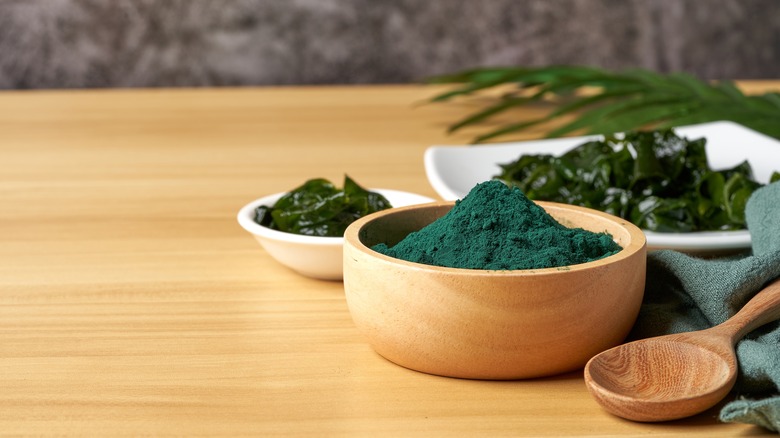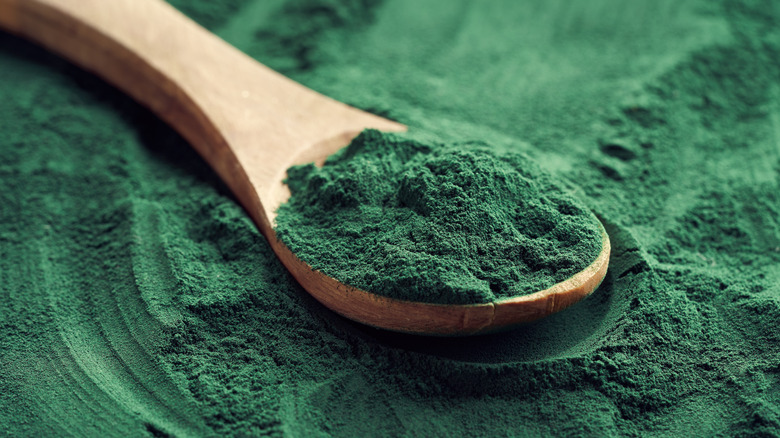Is Spirulina Bad For You?
Spirulina is a type of blue-green algae that is often touted as a superfood. Though it does have some health benefits, spirulina can also have some side effects. One of the main concerns with spirulina is its potential to contain harmful toxins (via Healthline). For example, spirulina may contain heavy metals and bacteria from the algae, which can be toxic in high doses. Additionally, spirulina may also contain microcystins, which are toxins that can cause liver damage.
Another concern with spirulina is that it may interact with certain medications, such as blood thinners and immunosuppressants. Therefore, it's important to speak with a healthcare provider before taking spirulina if you are taking any medications. Additionally, some people may experience digestive side effects, such as nausea, gas, and bloating, after taking spirulina. If these side effects occur, it's best to stop taking spirulina and speak with a healthcare provider. Overall, spirulina does have some potential health benefits but there are also some risks associated with taking it. Therefore, it's important to speak with a healthcare provider before taking spirulina to make sure it's safe for you.
The health benefits of spirulina
Spirulina is a type of blue-green algae that is rich in protein, vitamins, minerals, and carotenoids. It has been traditionally used as a food source in Central and South America, Africa, and Asia. More recently, spirulina has gained popularity as a dietary supplement due to its health benefits. Spirulina is a good source of vitamins B1, B2, B3, copper, iron, magnesium, manganese, phosphorus, and selenium (via Healthline). It also contains phycocyanin, which gives spirulina its potent antioxidant and anti-inflammatory properties.
Spirulina has been shown to boost the immune system, improve liver function, and protect against heart disease and cancer (via WebMD). It may also help to lower cholesterol and blood pressure, and reduce the risk of stroke. Spirulina is also thought to have anti-aging effects due to its high levels of antioxidants. Spirulina is available in powder, tablet, or capsule form, and it can be added to smoothies or juices, or taken as a dietary supplement. It is always best to speak with a healthcare professional before taking any new supplements.


